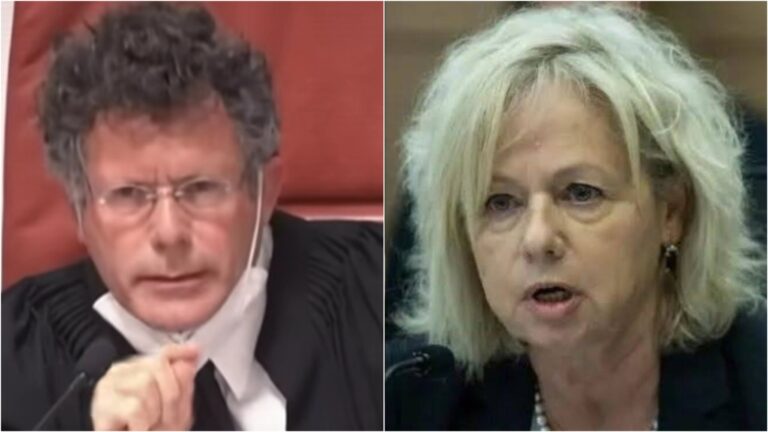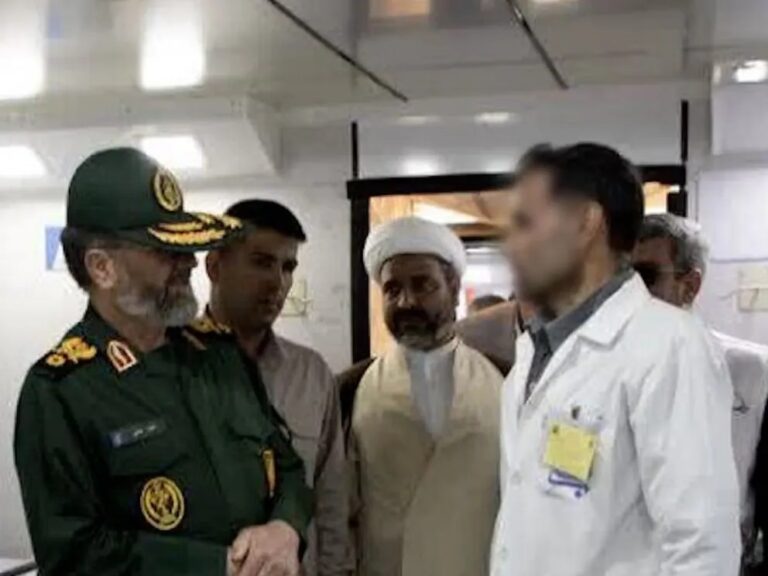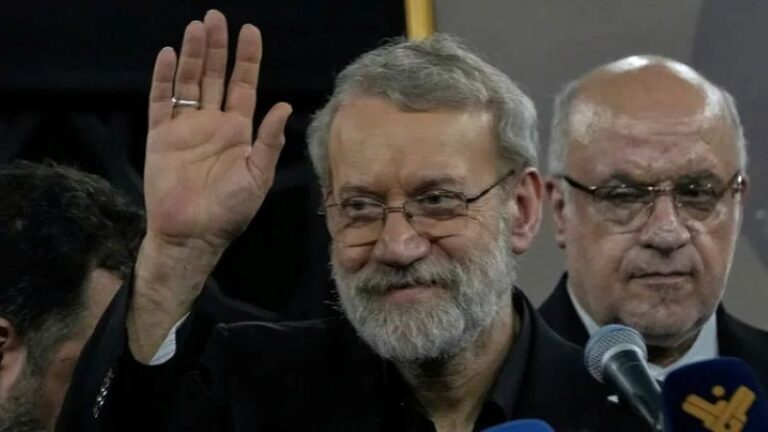 Erev Pesach 5775 marks approximately 70 years since the horrors of the Holocaust in Europe drew toward an end. Amongst the 6 million holy Jews who were cruelly murdered, 1.2 million were children. We cry for all of the victims, but the loss of the children cuts deeper. We Jews recognize that the future of our sacred religious path and mission to the world lies with our children.
Erev Pesach 5775 marks approximately 70 years since the horrors of the Holocaust in Europe drew toward an end. Amongst the 6 million holy Jews who were cruelly murdered, 1.2 million were children. We cry for all of the victims, but the loss of the children cuts deeper. We Jews recognize that the future of our sacred religious path and mission to the world lies with our children.
The recent tragedy of the seven beautiful Sassoon children who perished in a home fire on Shabbos is a fresh and excruciating blow to our national psyche. We all grieve together with the parents and pray for the recovery pf Mrs. Sassoon and her daughter. At the same time we were all inspired and awed by the depth of spiritual strength exhibited by Gavriel Sassoon. His profound faith ennobled us all and his simple message is one we all must heed. Love your children.
This serves to bring into sharp relief a most vexing and distressing issue which confronts us at this time, perhaps in greater measure than at any other time in our history; the loss of so many Jewish children to assimilation and intermarriage at a most alarming rate. Pesach is the particular holiday that is singularly focused on the paramount importance of faithfully transmitting to our children the story of our redemption from enslavement to Egypt and its depraved culture, and our consecration into the holy service of God Almighty. What are the lessons this Yom Tov imparts to us and how can we incorporate them into our daily interactions with our own precious children?
One of the highlights of the Haggadah is the passage regarding the “Four Sons – one wise, one wicked, one simple, and one who is unable to ask.” Who are these children? What accounts for their divergent paths in life?
In fact, we find echoes of these timeless archetypes manifested in our own recent history. From the late 19th century through the 20th century, particularly post Holocaust, many Jews immigrated to the United States to escape the persecutions of Russia and Nazi Europe. Upon reaching the shores of the “Goldene Medinah,” many of these Jews cast off what they considered to be the shackles of strict religious observance. Nevertheless, first generation immigrants who remembered the Jewish practices of their parents and grandparents maintained a tenuous connection to their Yiddishkeit.
However, the most detrimental step they took in weakening Jewish continuity was depriving their children of a solid Torah based education, as many sent their children to public schools. Their association with gentiles and non-observant Jews, coupled with watered down practice at home, led to resentment toward religion and increasing ignorance of Torah and Mitzvos. Invariably, the fourth generation lost any connection at all to the religion and traditions of their holy ancestors. This culminated in their total assimilation into secular society and a very high rate of intermarriage.
Perhaps this generational devolution is described in the Haggadah’s account of the four sons:
1) The “Wise Son” represents the first generation, still knowledgeable of the Jewish practice of his parents and grandparents. He maintains interest and is hungry to learn more.
2) The “Wicked Son” represents the second generation that becomes estranged from, and resentful of, religious restriction after experiencing the liberal lifestyle of the secular world surrounding him.
3) The “Simple Son” represents the third generation, all but ignorant of Judaism but still interested enough to ask, “What’s this?”
4) The “Son who knows not how to ask” is unfortunately so assimilated and far removed from religious identity that he doesn’t even know to ask about what he is missing, may Hashem protect us!
In our time, much to our dismay, we find that the influence of religious abandonment has infiltrated even into the most observant homes. This can be largely attributed to the unchecked and unsupervised proliferation of communication technologies which expose our children to all manner of immoral and deviant thinking. It also facilitates instant and ubiquitous conversations and encounters with people from all walks of life including those who mean to do harm to our precious children.
How do we combat these myriad negative influences and turn the tide in favor of, what we know to be, the sweet blessed path of Torah and Mitzvos?
The Hagaddah provides for us the first key. Make sure that you maintain a strong connection with all of your children. Always endeavor to cultivate a positive personal relationship with your children by demonstrating your love for them. Shower them with words of praise whenever appropriate. In turn, love will grow in their hearts for you and the lessons you are teaching them, as Scripture teaches “and I will return the hearts of the fathers to the children and the hearts of the children to the fathers” (Malachi 3:24).
At the same time, we also need to rebuke our children when necessary. But we must do so in a pleasant manner which offers more words of praise than harsh criticism. Rabbi Shlomo, the Rebbe of Radomsk zt”l wrote in his Sefer “Tiferes Shlomo” in the name of the tzaddikim of his generation, (commenting on Pirkei Avos 1:6), that one should rebuke others with pleasant words which will draw their hearts closer and inspire them to Yiras Shamayim. If he wrote these words for his generation, all the more so how much we must conduct ourselves in this manner in our times.
It is also critical that as parents, we do not abdicate educational responsibility solely to the schools. Even as we are involved in our own career pursuits, we must make time for our children. When my own grandfather, the Holy Tzaddik Grand Rabbi Yissochar Dov, the Linsker Rebbe, zt”l, was a young child, he studied together with a grandson of the holy Rebbe Yehoshua of Belz, zt”l. Every week the Belzer Rebbe tested both of them on their studies and afterward served them sweet fruits to eat. Take note, my grandfather was born in the year 5642 (1882), which was near the end of the life of the Belzer Rebbe. The Belzer Rebbe was a very busy man, one of the elder Rabbis and greatest Jewish leaders of his day. Yet, he always set aside time from his very busy schedule to see to the education of his grandchildren and their friends. We must assimilate this important practice into our schedules as well.
The night of the Passover Seder, when there is a special mitzvah to recline with one’s children and tell them the story of the Exodus from Egypt, is the ideal time to personally rededicate ourselves to repairing our relationships with our children and taking an active role in their education and development, recognizing that the continuity of the Jewish People depends on this.
Indeed, the Torah stressed the necessity of parental commitment in the way it commanded the very first offering of the Korban Pesach in Egypt. It began with preparation, several days ahead of time, tying the lamb to the bedposts. Afterward, the meat of the Korban Pesach had to be eaten quickly. This demonstrated to the children our love and enthusiasm for the mitzvah and the level of care taken in its preparation. Indeed, education encompasses everything a child sees and hears, even indirectly.
Furthermore, Halachah dictates that to partake of the Korban Pesach, one must be “counted in” ahead of time, in accordance with the verse, “a lamb for each family, a lamb for each household.” This teaches the importance of fellowship in the family unit. Additionally, one must be pure in order to partake of the korban. It is prohibited to share the Korban with heretics and people of low character who might exert negative influences over us and our children. Finally, we do many things to encourage the children to ask questions. This strengthens the bond between parents and children and will encourage strong identification, rather than assimilation.
Let us seize the special opportunity that Pesach affords us to renew the bonds of love and religious affiliation with our beautiful children. They are truly God’s most special gifts to us. And we owe Hashem our sacred commitment to ensure that they follow in His holy path of Torah and Mitzvos, on Pesach and always.
May this Pesach usher in a season of joy and redemption for all of Klal Yisrael and bring abundant blessing to you and your families. Finally, we pray for the fulfillment of the verse, “as in the days we left the Land of Egypt may we see wonders”, Amen!
נא להתפלל עבור מרן אדמו”ר שליט”א רבינו ‘משה בן ריזל’ לרפואה שלימה
(YWN World Desk – NYC)










